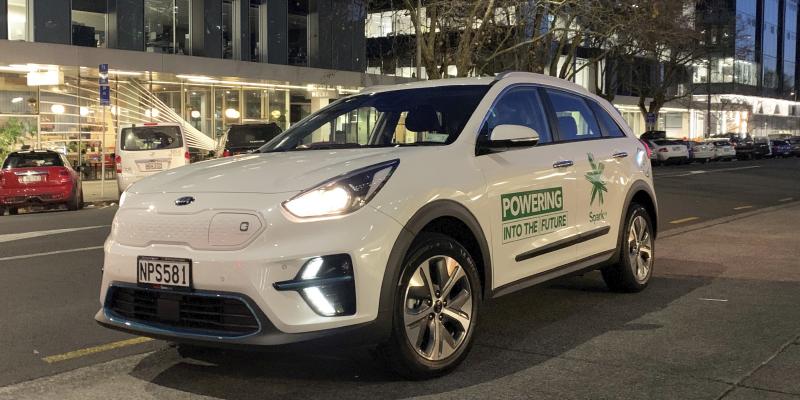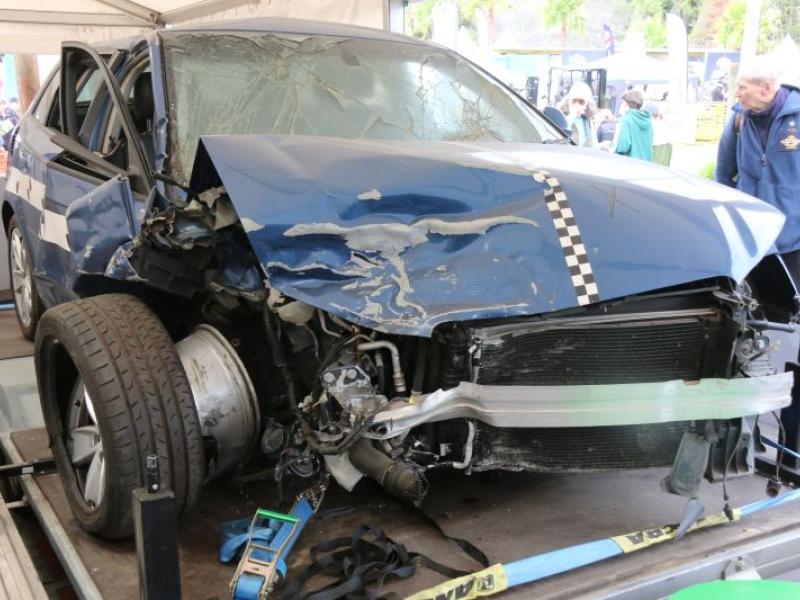Fleet focused pool car management
Many companies will probably be looking to take the long journey of progressive fleet tracking and management and may be looking to find a travelling companion to point out the best road ahead.
You may not want a travelling companion who knows all there is to know about fleet tracking but doesn’t really know about your business – maybe you’d rather travel with someone who can relate easily to what your company does and is travelling with you more as a partner than a customer?
Spark Internet of Things then, might just be the travelling buddy you’re looking for. While Spark is a name more associated with telecommunications, Spark IoT is better recognised for developing solutions for clients looking to improve their business efficiency.
And Spark IoT has been working on a fleet tracking and management solution, partnering up with well-established and experienced developer Blackhawk to ensure consistent high quality data acquisition and management.
Spark IoT’s fleet tracking solution saw its first roll out in March and the system is growing better all the time as new clients come on board with their own unique fleet tracking requirements.
It could be said that Spark IoT is on an expressway on its way to completion, but Spark IoT is already well on its way and as such, is the perfect partner to grow with.
The most recent section of highway to be completed is an add-on to the fleet tracking solution; the pool booking feature, which has just been released after considerable testing and evaluation.
Alex Tan, product development specialist for Spark IoT explains:
“As part of a comprehensive fleet tracking solution, we wanted to make sure our business partners saw an increase in productivity, efficiency and sustainability, the key to which is having a robust, well trialled system.
“When we determined a pool booking add-on to the system was something which would benefit many SME businesses, we prototyped it in-house. Karinne Addis was responsible for that part of the process especially, and she worked with Blackhawk extensively to benchmark the system using the Spark fleet as a test bed.”
The Fleet Tracking solution is remarkably simple to install, largely through the input of Blackhawk’s experiences and Spark IoT’s requirements.
“We needed to make sure the product was robust, affordable and uncomplicated – especially when it came to installation,” says Alex.
“There is a self-installing wizard for the program and a plug-in unit for the vehicle’s onboard diagnostic port. Alternatively, we can provide a hard wired ‘black box’, but the plug-in unit is more affordable.
“With the Fleet Tracking solution and the Pool Car add-on, your investment comes to less than a $6 coffee a week.”
Alex adds, “A contemporary pool booking system is more relevant today than it has ever been, although the benefits we have found with the Spark fleet were not those we necessarily expected.”
One such was the massive saving in administration time.
While drivers being able to book their own vehicles is much more efficient than having someone else coordinate everything is an obvious advantage, the pool booking system keeps tabs on the service requirements and administrative processes attached to the vehicles.
“We saw a reduction in administration and monitoring time of 80 percent,” according to Alex, “which means some one in the organisation had that much more time to perform other more productive tasks.”
In addition to this, the Pool Booking system incorporates an algorithm which calculates the vehicles with the lowest lease life and the highest mileage and prioritises them for bookings first, which for a fleet of 30 to 50 vehicles is quite a time-consuming calculation for someone to make on a regular basis – more so if all the vehicles are the same make and model.
In practical terms, the Spark fleet went through some significant changes as the result of the Pool booking testing.
The pool fleet was reduced from 17 vehicles to eight as a result of an evaluation of vehicles used, which represented a serious saving.
As Alex points out, “Using data we gained through the testing, we found nine cars were being under utilised and were therefore surplus to requirements.
“Of course, for some companies, the result may not be so drastic. Some of those vehicles may be better suited to other areas of the business.”
Something that became very clear was the impressive amount of data which the pool booking system was able to generate through clever telematics.
This data allowed for a greater understanding of Spark’s fleet’s usage and – as discovered with the utilisation of vehicles – an increase in potential savings relating to fleet costs.
If your organisation is interested in maximising fleet vehicle efficiency and partnering with a supplier which works to achieve your business goals, a visit to the www.spark.co.nz/iot/fleet website is time well spent.






